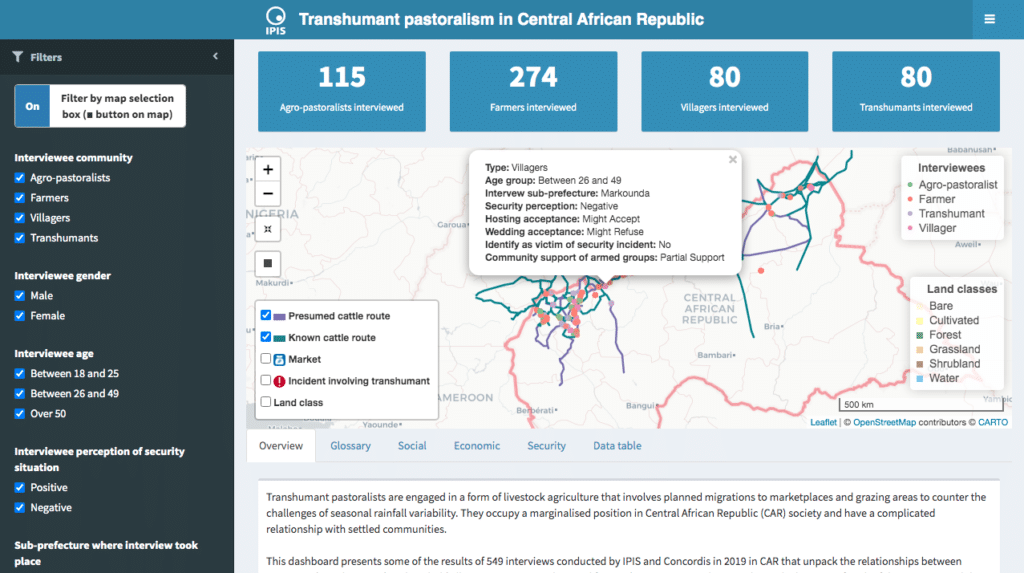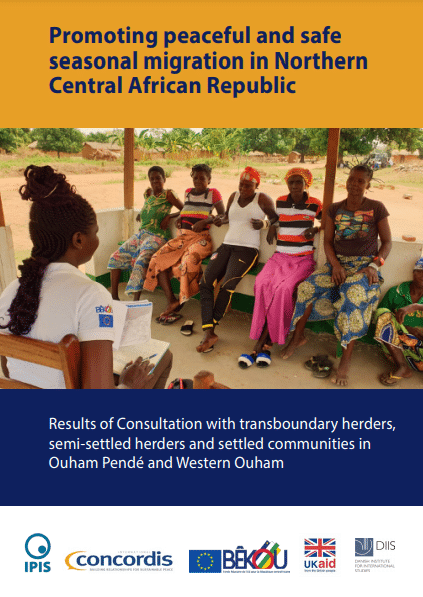“You can negotiate with an armed group, not with the drought”
The borderlands of the Central African Republic (CAR) are home to one of the largest seasonal livestock migrations (transhumance) in the world. Decades of unrest and crisis, however, have brutally disrupted most aspects of herding—the routes taken, the people involved, governance mechanisms, as well as relations to local populations.
To understand these changes and inform future peacebuilding efforts, IPIS and Concordis conducted a large-scale mapping and consultation with 1.300 stakeholders in CAR’s western borderlands of Ouham-Pendé and Western Ouham.
Based on these consultations, the report takes a deep dive into the different mutual perceptions of transboundary and local herders and sedentary people of the deep causes of conflict and pathways for peaceful cohabitation. It identifies changes in herding routes and practices, highlights grass-root barriers to peace, assesses trust in different institutions for security and justice, and identifies opportunities for conflict transformation and economic growth.
The survey showed that herders and settled populations are interdependent and both groups are aware of this interdependency. 97% of herders and 90% of settled people consider trade between them is necessary for their subsistence.
However, both herders and sedentary people acknowledge that the militarization of rural CAR has disrupted this cohabitation. Sedentary population acknowledges that their youth are to blame: mobilising in so-called Anti-balaka groups, they raid cattle, provoking retaliation by herders. However, amongst the transhumant category, sedentary people blame youthful transboundary herders, traveling without family but with weapons, to provoke animosity by disrespecting farmland and appealing to armed groups for conflict resolution.
Armed groups such as 3R have taken control of the governance of transhumance, by destroying local negotiations and institutions around access to seasonal pasture and replacing them with monetized pasture licenses for transboundary herders from Chad and Cameroon.
In exchange, armed groups levy heavy taxes in kind, appropriating vast numbers of cattle. Transboundary herders nonetheless prefer exposing their herds to insecurity in CAR, because its pastures are so rich–they’d lose more cattle to drought and limitations on herding in Chad or Cameroon. As one Chadian herder put it, “you can negotiate with an armed group, not with the drought”.



